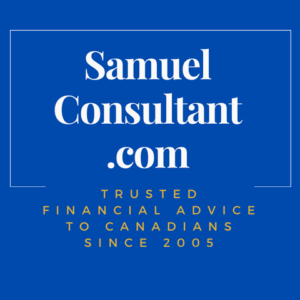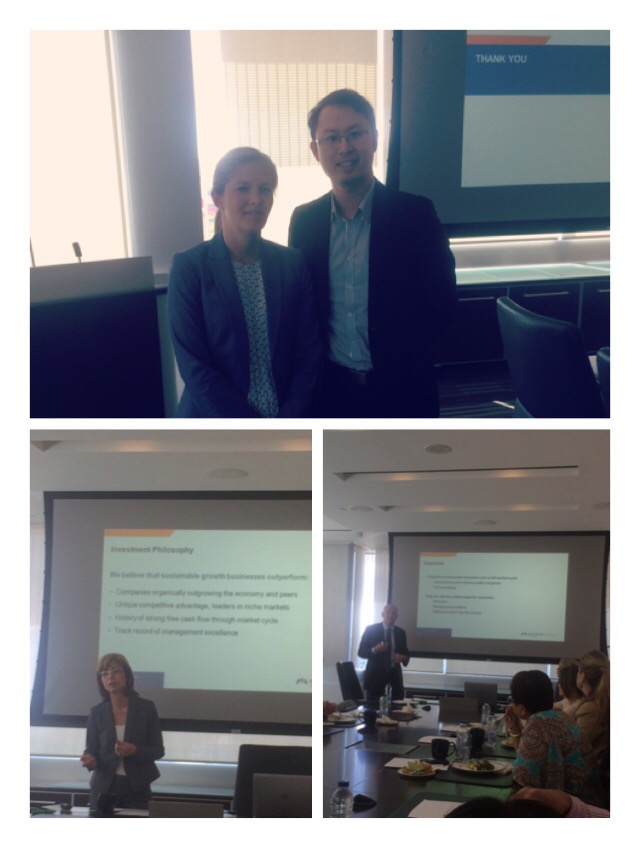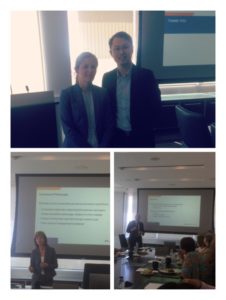This Wednesday, I was invited delightfully to the Mackenzie Investments Symposium day. This professional event was hosted in their office building in downtown Toronto, and the purpose was to develop a deeper understanding about the different investment processes of their fund management teams. Since many of my clients are using the Mackenzie’s investments in growing their Registered Disability Savings Plan, I definitely would not miss this opportunity.
During that day, there were a number of well experienced fund managers that shared their strategies in managing the investments. Although their focus could be different among one another, (for example, one could be focusing in the Canadian market, while another would be in US), their tactics had some common ground which also aligned with my own investment philosophy. Below are a few lessons that I got out from the day.
Not Relying On Just A Single Company:
There is a saying “never put all your eggs into one basket“. Regardless of how great a company is doing today, there are many unpredictable external factors that could affect their future earnings. If a person invested in only one stock, but that company went bankrupt, one could lose all the retirement savings. The more secure way to invest over the long-term would be to build a well diversified portfolio, where it would invest into different industries, countries or even asset mix. This way, even when a company goes south, it would have a much less significant impact to the overall portfolio.
Concentrated Holdings:
You may think this is contradicting to the above, but actually it is not. A fund can be well diversified into different sectors, but that does not necessarily mean it needs to invest into hundreds of companies. I personally prefer funds that invest into 30 to 50 stocks, 100 would be the maximum. The reason is I require the fund management teams to really understand the companies that they are investing. If they were investing into hundreds of stocks, it would be doubtful how much do they really know about the individual companies.
Competitive Edge:
In order for a company to continuously in making good profit, it must have its own advantages over its competitors. For example, it could be the knowledge and skills they have in servicing a particular market niche, a technology or infrastructure that only their company has, or the deep understanding and relationship they have with their clients.
Less Cyclical
During the event, several fund managers expressed that they will not invest into a company simply because it is currently the most hot idea. If we were looking for stable long-term performance, then obviously we should invest into companies that could generate good profits regardless of different market cycles.
Good Fundamentals
Even when a stock goes up, it does not automatically make it a good company. There are way too many factors that could influence a stock price to go up. For example, many investors blindly follow the crowd and rush in to buy the stock. A well experienced fund manager would examine carefully at the different fundamentals metrics of the companies. For instance, how much cash could a company generate in an ongoing basis? How well are the management of the company? Are they reinvesting the companies’ earning wisely to improve their products and services? or is the company carrying a lot of debts just to pay the managements for a good bonus?
Focus On The Invested company, Not The News
We are living in a world that is bombarded with different financial news everyday. It is very easy to lose track of your focus. A sophisticated fund manager would stay disciplined with their investing process, and focus on the information that is relevant to their investment decision. Here are several key questions that they would commonly ask:
– Will this company continue to generate good profit in the long run?
– Is this a reasonable price to pay for it?
RDSP tends to be for long-term investments, in many cases, the investment duration could be over 10, 20 or even 30 years. Although I do see the number of investment choices for the RDSP account have been expanding throughout the past few years, I would be interested in seeing more alternative choices in the future.
Curious about whether we’re the right fit for your RDSP planning? Let’s schedule a preliminary online meeting to discuss your financial needs. This will give you a clearer understanding into our client-focused approach. To get started, just drop me an email at Samuel@SamuelConsultant.com
Disclaimer:
The comments contained herein are a general discussion of certain issues intended as general information only and should not be relied upon as investment, financial, legal, accounting or tax advice. Please obtain independent professional advice, in the context of your particular circumstances. This newsletter was written, designed and produced by Samuel Li for the benefit of Samuel who is Advisors at : SamuelConsultant.com is a registered trade name with Investia Financial Services Inc., and does not necessarily reflect the opinion of Investia Financial Services Inc. The information contained in this article comes from sources we believe reliable, but we cannot guarantee its accuracy or reliability. The opinions expressed are based on an analysis and interpretation dating from the date of publication and are subject to change without notice. Furthermore, they do not constitute an offer or solicitation to buy or sell any securities.
Mutual Funds, approved exempt market products and/or exchange traded funds are offered through Investia Financial Services Inc.
Commissions, trailing commissions, management fees and expenses all may be associated with mutual fund investments. Please read the simplified prospectus before investing. Mutual funds are not guaranteed and are not covered by the Canada Deposit Insurance Corporation or by any other government deposit insurer. There can be no assurances that the fund will be able to maintain its net asset value per security at a constant amount or that the full amount of your investment in the fund will be returned to you. Fund values change frequently and past performance may not be repeated. Investia is not liable and/or responsible for any non mutual fund related business and/or services.


